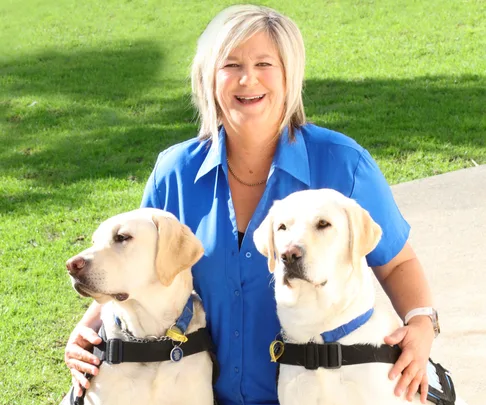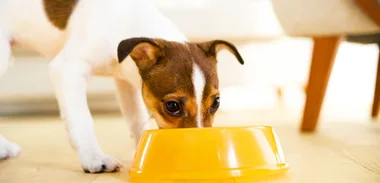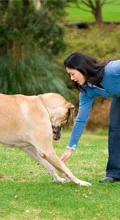“Dogs aren’t only pets – they can also carry out important life-saving duties. It’s just as well my husband David and son Jarrod (20) are animal lovers! I’m in the process of teaching not one, but five young dogs important new tricks and I often bring my job home with me – quite literally, as I work with assistance dogs.
I do usually get a bit of a break most weekends when my current dogs go to their boarders, but for various reasons, there are times when I have three of them living in. I’m really lucky David never complains about the state of the back lawn, even when it looks as if a rugby game has just been played there!
I initially worked with guide dogs after leaving school, eventually training as a vet nurse after my big OE. After that, I worked again with Guide Dog Services for many years.
Nowadays, I’m finding huge satisfaction with Assistance Dogs New Zealand (ADNZ) in an ever-evolving role as training coordinator, which I took up three years ago.
There were already dogs for the blind and hearing dogs doing wonderful work in the community when our founder, Julie Hancox, decided there was a niche for other sorts of assistance dogs, and that’s why the trust was born in 2008.
At ADNZ, we operate our own breeding programme, which began with a male yellow Labrador and a female black Labrador donated by Guide Dogs Queensland. Golden retrievers are now being introduced too.
We’ve got a really good gene pool going with dogs who suit our purposes very well and we can keep costs down by using artificial insemination. The most important thing is making sure that the freezer stays cold!
All of our dogs go through the standard puppy programme and have their health and temperament evaluated to make sure they’re suitable for their potential roles.
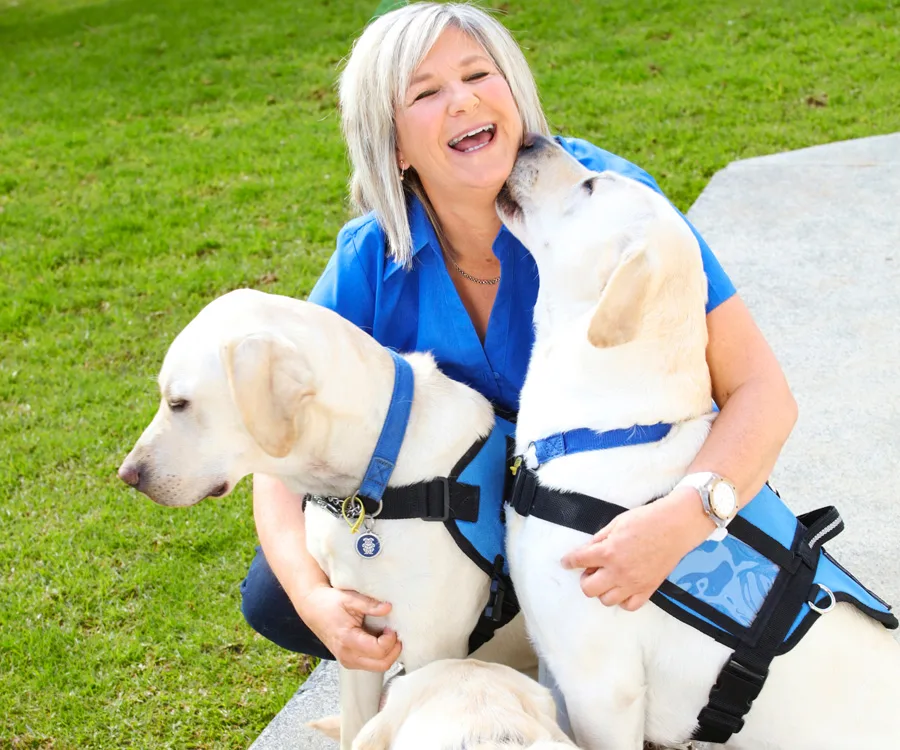
Many of the dogs at ADNZ are trained to help autistic people and, with this in mind, when I begin work assessing a puppy, I always look first to see if it has a nice relaxed nature.
That’s because those who are autistic can often become overwhelmed by their surroundings or circumstances and succumb to sensory overload. In other words, a meltdown. In these cases, a dog that keeps calm can help diffuse the situation and provide huge comfort. I’ve seen truly moving examples of this in action.
Some youngsters who don’t speak have shocked their families by being able to say their dog’s name and the dogs themselves generally become completely devoted – even carrying the owner’s towel to swimming!
We train them to ‘mirror’ the child’s activity so if he or she doesn’t want to comb their hair or clean their teeth, they see the dog having it done and often decide that it’s okay after all.
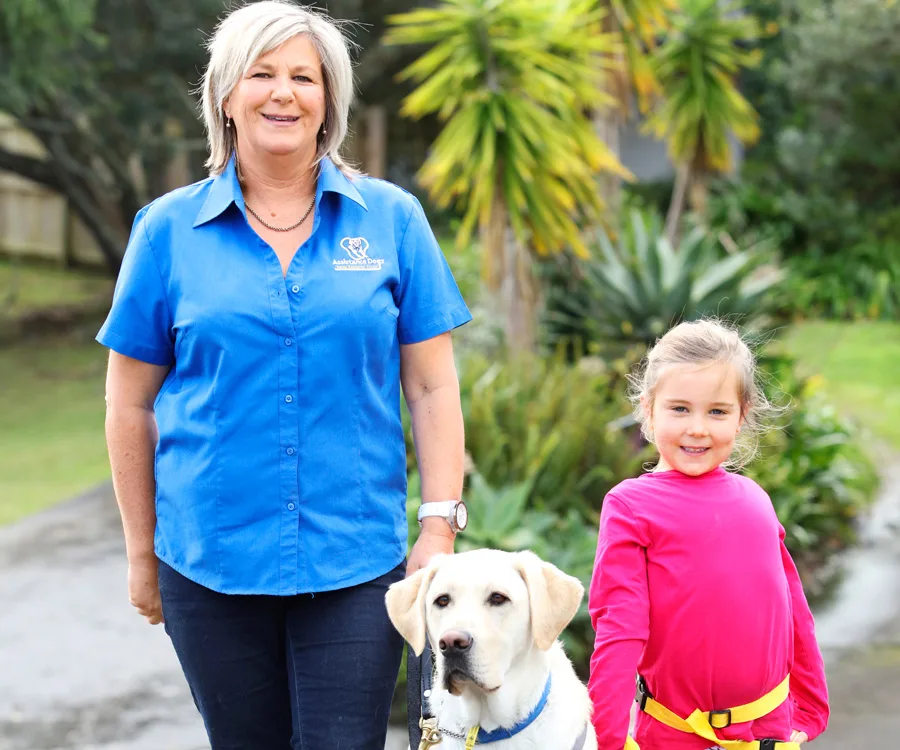
I also look for dogs who seem to exhibit an acute sense of smell and react quickly under pressure. These are the ones who can be incredibly valuable when working with people who have diabetes – especially children. They can be taught to sense when the person’s blood sugar is low and alert others to help.
We have a great team here – there are just five of us – and we all work together to make sure our dogs enter the community fully trained and they’re well-equipped to change the lives of families.
In some cases, parents finally get a few hours respite after years of 24/7 devotion to a child with special needs. Around 30 assistance dogs are currently working throughout New Zealand and the trust always has a waiting list.
It costs a lot to train a dog for someone’s specific circumstances – once those particular needs have been ascertained – and it also takes a considerable length of time.
We operate a ‘pay ahead’ system so families need to pay or fundraise up front. In an ideal world, we’d just give them the perfect dog but sadly that’s not realistic. Any help we get from the public goes towards making access a little easier.”
